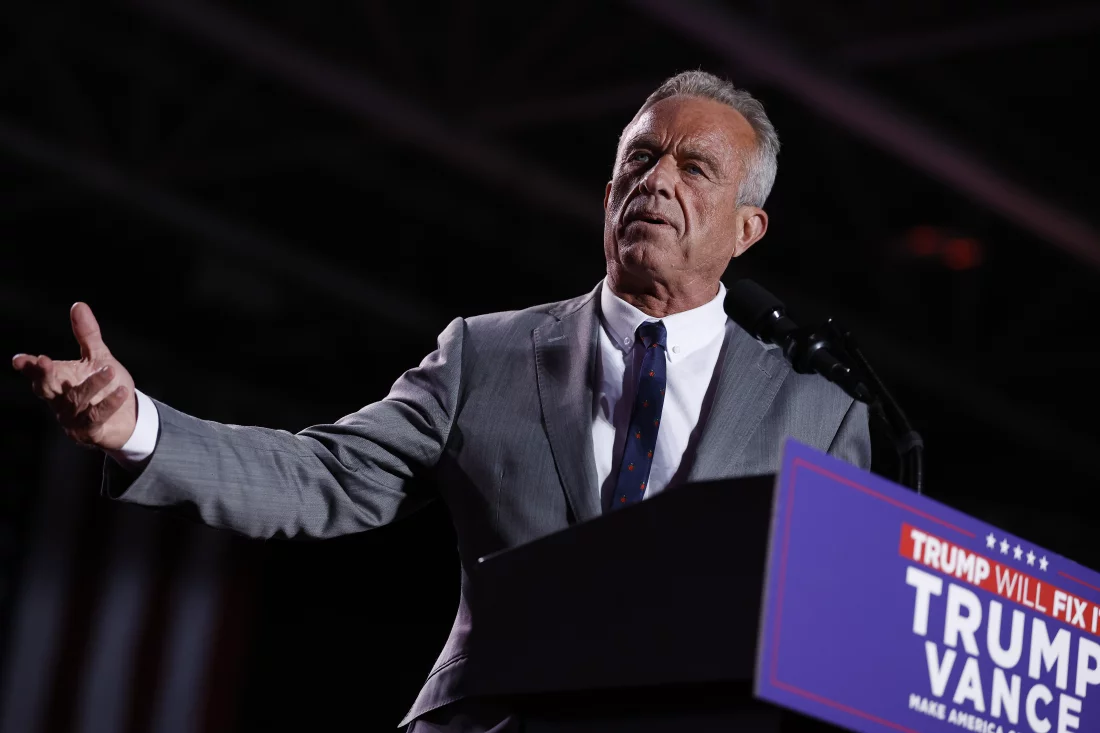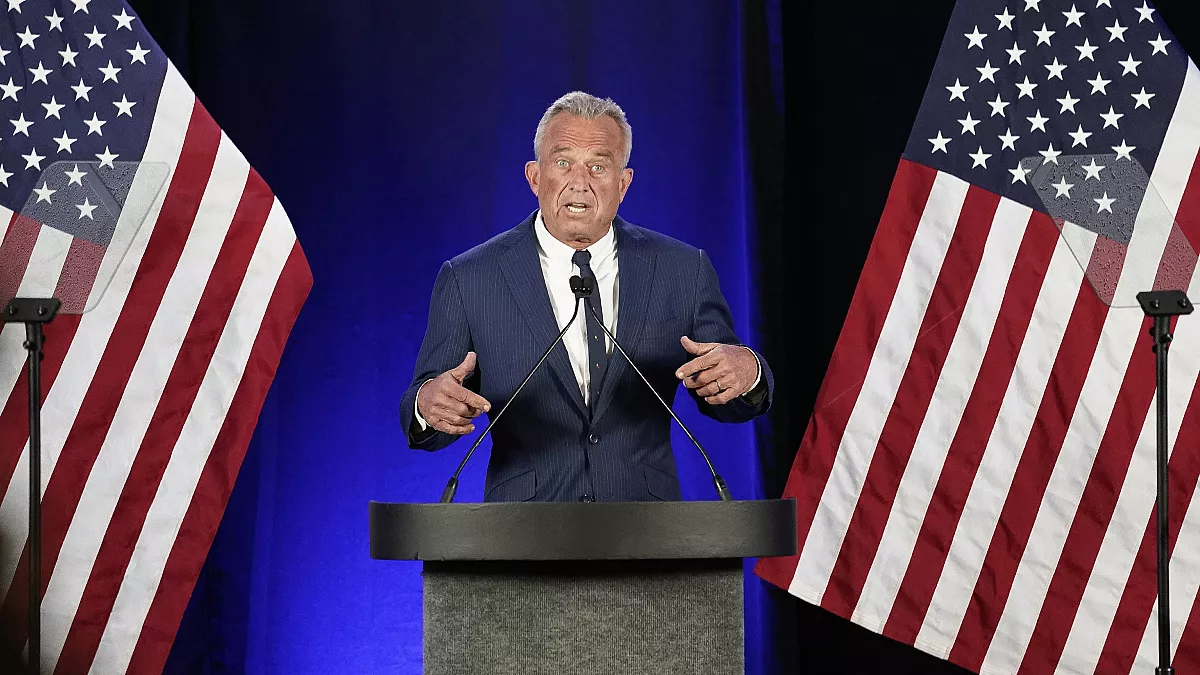By Charalampos Karouzos,
As many analysts expected, the recent appointment of Robert F. Kennedy Jr. as the U.S. Secretary of Health and Human Services has reinflamed many highly controversial health debates, and recently, the lens has focused on the HPV vaccine. Kennedy, a long-time very well-known critic of vaccines, has played a key role in litigation against Merck, the pharmaceutical company behind Gardasil, the most widely used HPV vaccine. His opposition to vaccines, including HPV immunization, is not just a matter of personal belief; despite lacking any formal medical education, he now has the potential to shape national health policy.
With his new role, Kennedy is in the most powerful position to influence vaccine regulations in the USA, raising concerns about the impact of misinformation spread on public health policy. Given the extensive scientific evidence proving the safety and effectiveness of the HPV vaccine, this renewed debate threatens to undermine decades of progress in preventing HPV-related cancers.
HPV (human papillomavirus) is a common infection transmitted through both sexual and non-sexual contact, and capable of causing cervical, throat, anal and other cancers, as well as oral lesions like cold sores. That’s why the development of the HPV vaccine was a major breakthrough in cancer prevention, offering protection against the most high-risk strains of the virus. In fact, from its introduction, millions of doses have been administered worldwide, with data clearly showing significant reductions in HPV infections and related cancers. However, despite its well-documented benefits, the vaccine has been the target of persistent misinformation, largely fueled by groups that claim it causes severe side effects, claims that scientific studies and health organizations, including the CDC and WHO have repeatedly debunked.

Given this context, Kennedy’s involvement in lawsuits against Gardasil has been particularly troubling. He has accused Merck of misleading the public about the vaccine’s safety and effectiveness, a claim that without a doubt echoes broader anti-vaccine rhetoric. Indeed, during his Senate confirmation hearings, he refused to disavow past statements discouraging parents from vaccinating their children. While he has since stated that he will divest his financial interest in the ongoing Gardasil lawsuits, the damage has already been done, and his role in spreading vaccine skepticism has contributed to declining trust in immunization efforts.
The scientific consensus on the HPV vaccine, being the result of multiple rigid studies, is absolutely clear; it is safe, effective, and a crucial tool in cancer prevention. Clinical trials involving over 15,000 participants confirmed its safety before it was approved, and extensive post-market surveillance has continued to support these findings. The most common side effects, mild dizziness, nausea, and fever are consistent with those of many routine vaccines. In addition, the more serious conditions often linked to the vaccine by its critics, such as autoimmune disorders, have not been proven to be causally associated with HPV immunization. Despite this, the US health secretary, Kennedy, and similar voices continue to amplify unfounded concerns, fueling vaccine hesitancy and undermining public health initiatives.
At this point it must be highlighted that hesitancy and concern in the scientific realm drive the conquered knowledge of humanity forward, however, any doubt must be supported on the same kind of rigid foundation that extends beyond simple personal opinion or even worse political gain. Indeed, regardless of the scientific debate under the current spotlight, we are brought upon a logical error, trying to overrun scientific data by not using data but by bringing external, not related, factors to the table.
One would anticipate that the potential consequences of this debate will extend far beyond the realm of HPV prevention. If Kennedy continues to use his prestigious and powerful position to weaken vaccine mandates or limit public funding for immunization programs, the repercussions could be catastrophic. The HPV vaccine is most effective when administered before individuals become sexually active, meaning delays or reduced access could significantly impact future cancer rates. Furthermore, any erosion of public trust in vaccines could extend to other immunization programs, including those for measles, influenza, and others.

The timing of this debate is particularly troubling, given that vaccine confidence in the U.S. is already fragile following the COVID-19 pandemic, during which exacerbated distrust in public health institutions, and anti-vaccine narratives gained unprecedented traction as seen in recent years. The HPV vaccine, like many others, was not the primary focus of his campaign against vaccines but is at risk of becoming collateral damage in a broader ideological war against scientific expertise. Health policies should be grounded in rigorous evidence, not the personal legal battles of those in power.
Beyond the immediate risks to public health, Kennedy’s stance on the HPV vaccine is another example that raises ethical concerns about the role of government officials in shaping medical policy. When those in positions of authority spread misinformation, they do more than mislead the public, they create tangible harm. The CDC, WHO, and leading oncologists worldwide stand behind the HPV vaccine as one of the most significant advancements in cancer prevention, and the data is undeniable; yet political influence threatens to distort reality and steer health policy away from evidence-based decision-making.
In a glimpse, the outcome of the debate is very simple, the stakes of this debate are too high to allow misinformation to prevail, the HPV vaccine is not just another medical option; it is a critical public health intervention that saves lives. If the new health secretary succeeds in shifting policy away from scientific consensus, the consequences will not be theoretical, they will be measurable in preventable cancers, unnecessary suffering, and lost lives. Unfortunately, it must be repeated that public health should not be dictated by lawsuits and conspiracy theories but by data, research, and the overwhelming consensus of medical experts. The challenge now is to ensure that facts triumph over fear and that access to life-saving vaccines remains protected from political interference.
References
- Exclusive: Kennedy played key role in Gardasil vaccine case against Merck. Reuters. Available here
- Kennedy Says He Will Give HPV Vaccine Lawsuit Proceeds to His Son. The New York Times. Available here
- Is the HPV Vaccine Safe? Yes, Despite Kennedy’s Criticisms. The New York Times. Available here
- HPV Vaccination Recommendations. CDC. Available here




